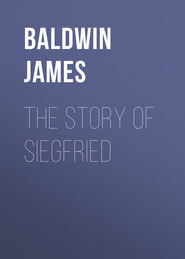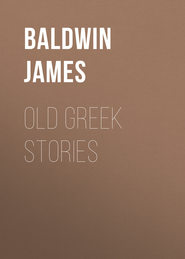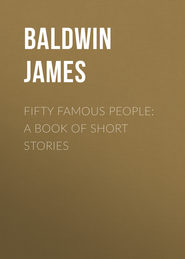По всем вопросам обращайтесь на: info@litportal.ru
(©) 2003-2024.
✖
Four Great Americans: Washington, Franklin, Webster, Lincoln
Настройки чтения
Размер шрифта
Высота строк
Поля
The ship sailed.
But no letters, nor any word from Governor Keith, had been sent to Franklin.
When he at last arrived in London he found himself without money and without friends.
Governor Keith had given him nothing but promises. He would never give him anything more. He was a man whose word was not to be depended upon.
Franklin was then just eighteen years old. He must now depend wholly upon himself. He must make his own way in the world, without aid from anyone.
He went out at once to look for work. He found employment in a printing-office, and there he stayed for nearly a year.
Franklin made many acquaintances with literary people while he was in London.
He proved himself to be a young man of talent and ingenuity. He was never idle.
His companions in the printing-office were beer-drinkers and sots. He often told them how foolish they were to spend their money and ruin themselves for drink.
He drank nothing but water. He was strong and active. He could carry more, and do more work, than any of them.
He persuaded many of them to leave off drinking, and to lead better lives.
Franklin was also a fine swimmer. There was no one in London who could swim as well. He wrote two essays on swimming, and made some plans for opening a swimming school.
When he had been in London about a year, he met a Mr. Denham, a merchant of Philadelphia, and a strong friendship sprang up between them.
Mr. Denham at last persuaded Franklin to return to Philadelphia, and be a clerk in his dry-goods store.
And so, on the 23rd of the next July, he set sail for home. The ship was nearly three months in making the voyage, and it was not until October that he again set foot in Philadelphia.
* * * * *
XI.—A LEADING MAN IN PHILADELPHIA
When Franklin was twenty-four years old he was married to Miss Deborah Read, the young lady who had laughed at him when he was walking the street with his three rolls.
They lived together very happily for a great many years.
Some time before this marriage, Franklin's friend and employer, Mr.
Denham, had died.
The dry-goods store, of which he was the owner, had been sold, and Franklin's occupation as a salesman, or clerk, was gone. But the young man had shown himself to be a person of great industry and ability. He had the confidence of everybody that knew him.
A friend of his, who had money, offered to take him as a partner in the newspaper business. And so he again became a printer, and the editor of a paper called the Pennsylvania Gazette.
It was not long until Franklin was recognized as one of the leading men in Philadelphia. His name was known, not only in Pennsylvania, but in all the colonies.
He was all the time thinking of plans for making the people about him wiser and better and happier.
He established a subscription and circulating library, the first in America. This library was the beginning of the present Philadelphia Public Library.
He wrote papers on education. He founded the University of Pennsylvania. He organized the American Philosophical Society.
He established the first fire company in Philadelphia, which was also the first in America.
He invented a copper-plate press, and printed the first paper money of New Jersey.
He also invented the iron fireplace, which is called the Franklin stove, and is still used where wood is plentiful and cheap.
After an absence of ten years, he paid a visit to his old home in Boston. Everybody was glad to see him now,—even his brother James, the printer.
When he returned to Philadelphia, he was elected clerk of the colonial assembly.
Not long after that, he was chosen to be postmaster of the city. But his duties in this capacity did not require very much labor in those times.
He did not handle as much mail in a whole year as passes now through the Philadelphia post-office in a single hour.
* * * * *
XII.—FRANKLIN'S RULES OF LIFE
Here are some of the rules of life which Franklin made for himself when he was a very young man:
1. To live very frugally till he had paid all that he owed.
2. To speak the truth at all times; to be sincere in word and action.
3. To apply himself earnestly to whatever business he took in hand; and to shun all foolish projects for becoming suddenly rich. "For industry and patience," he said, "are the surest means of plenty."
4. To speak ill of no man whatever, not even in a matter of truth; but to speak all the good he knew of everybody.
When he was twenty-six years old, he published the first number of an almanac called Poor Richard's Almanac.
This almanac was full of wise and witty sayings, and everybody soon began to talk about it.
Every year, for twenty-five years, a new number of Poor Richard's Almanac was printed. It was sold in all parts of the country. People who had no other books would buy and read Poor Richard's Almanac. The library of many a farmer consisted of only the family Bible with one or more numbers of this famous almanac. Here are a few of Poor Richard's sayings:
"A word to the wise is enough."
"God helps them that help themselves."
"Early to bed and early to rise, Makes a man healthy, wealthy, and wise."
"There are no gains without pains."
"Plow deep while sluggards sleep, And you shall have corn to sell and to keep."
"One to-day is worth two to-morrows."











